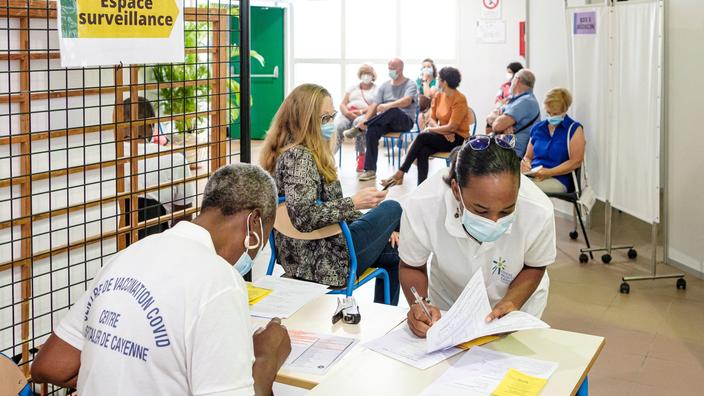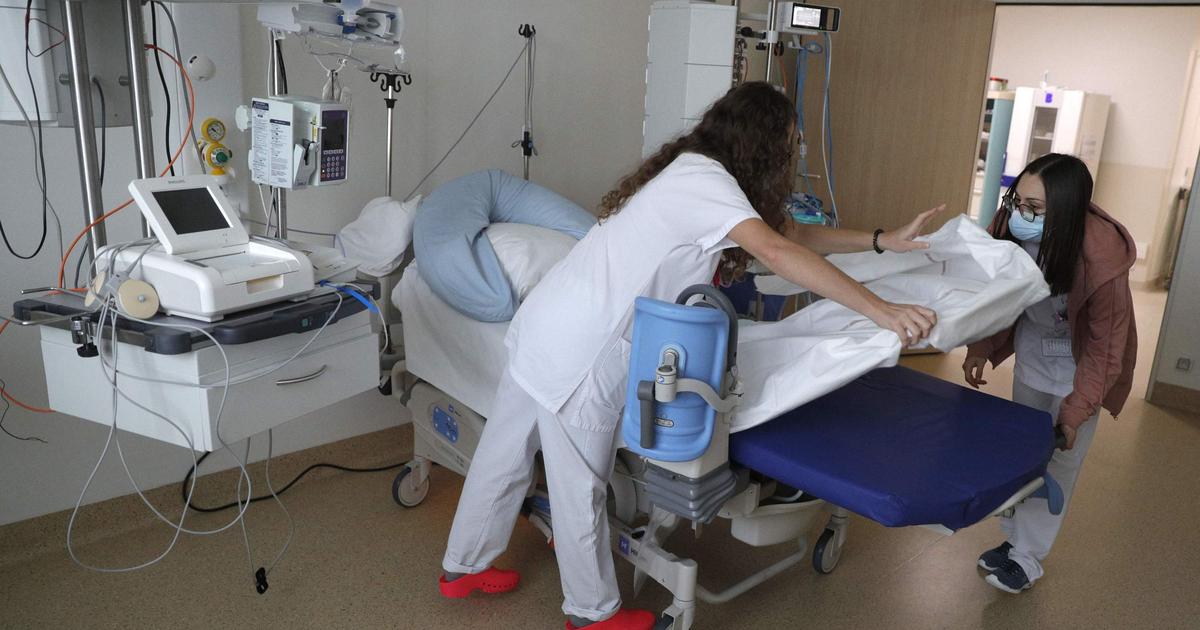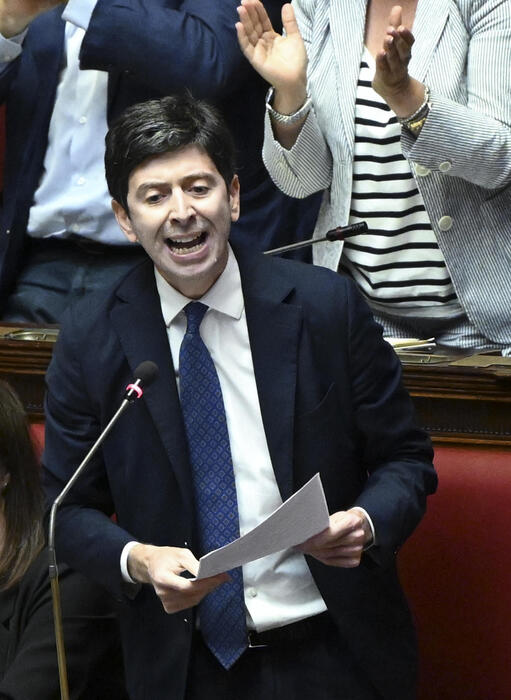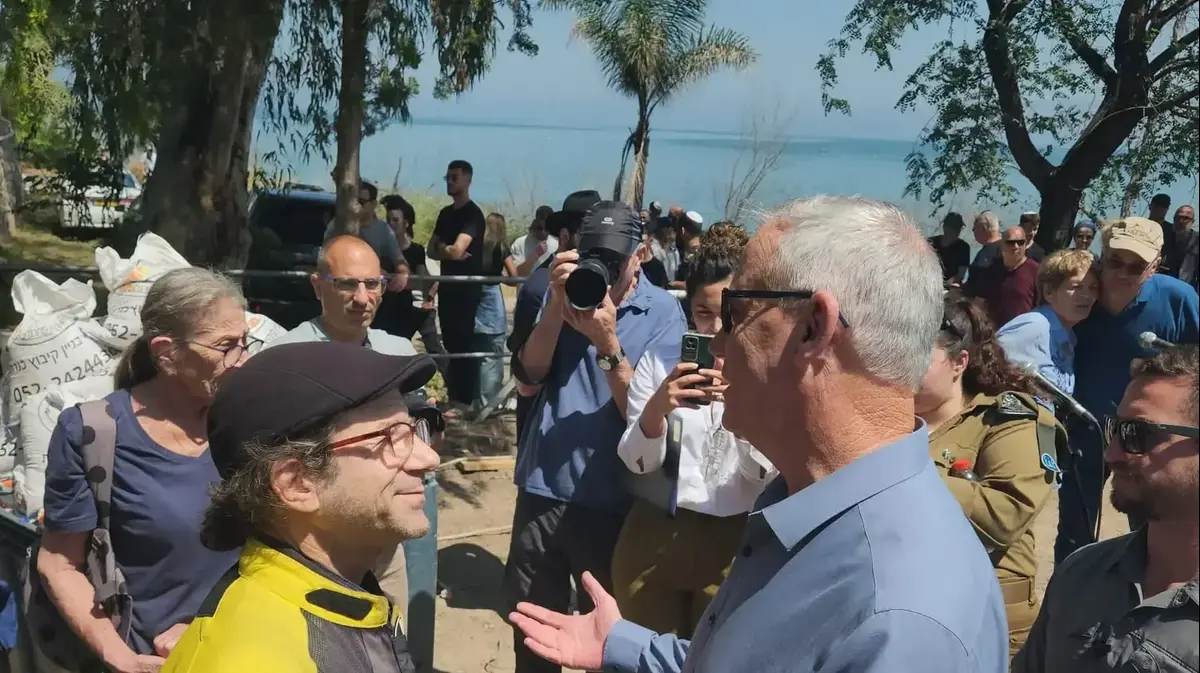Barely 4% of the population vaccinated in Reunion, 3% in Mayotte or, worse, 2.54% in Guadeloupe.
The vaccination campaign has still not found its cruising speed in the overseas territories.
By way of comparison, nearly 11% of the population of Île-de-France is now vaccinated even though the region has the lowest vaccination rate in metropolitan France.
The rate of the vaccinated population thus amounts to 14.40% in New Aquitaine and more than 17% in Corsica.
Read also: The weed, anti-Covid miracle or marketing coup from Guadeloupe?
In Overseas Territories, the first injection takes place on January 7 when Jérôme Viguier, the director of ARS Martinique, is vaccinated.
For Mayotte, it is necessary to wait for January 28, that is to say practically a month after the start of the vaccination campaign in metropolitan France, on December 26.
However, this slower start is not enough to explain why, even today, the overseas territories remain far behind.
In addition to logistics that are even more difficult to set up than in France, some regions indicate that they received few doses at the start of their campaign.
Mayotte, for example, only got 975 doses in its first delivery.
Dominique Voynet, former minister and now director of ARS Mayotte, assures us that his teams
“started using these doses very quickly in order to show that we could vaccinate quickly”.
"I am happy to have been heard by the government," she
emphasizes
,
however, since she now receives more bottles.
On the Guyana side, the director of the ARS, Clara de Bort, regrets that her department was
"the least well endowed with vaccine doses"
for several months because of the few elderly people to be vaccinated.
"
We had only opened three vaccination centers because we did not have enough doses to be able to vaccinate more and launch large campaigns."
In the entourage of the Minister of Overseas, Sébastien Lecornu, however, they deny that the problem comes from the State:
“We do not skimp on the number of doses, they are delivered and continue to be.
We are at a little more than half of the doses that are consumed, out of those delivered, in certain departments, so it is not a problem that comes from the State ”.
Acceleration of deliveries
According to figures from the ministry, 82.7% of the doses delivered were used in Reunion on March 29, 55.5% in Guyana against 36.5% in Mayotte and 39.5% in Martinique.
The ministry has also promised an acceleration of deliveries with the sending of 3,500 additional doses per territory to Reunion, Mayotte, Martinique and Guadeloupe.
The week of April 5, Reunion Island is to receive 5,850 additional doses and 6,000 doses per region will also be sent to New Caledonia, Guyana and French Polynesia.
The number of doses delivered and used overseas.
Ministry of Overseas
More than the number of doses, the ARS must above all deal with a territory that is not always accessible.
The overseas departments have followed the government's recommendations and installed at least one vaccination center for 100,000 inhabitants.
This does not mean that the entire population can access it.
In Guyana, for example,
“there are areas where there are no roads and it sometimes takes two days by canoe to access certain areas,”
says Clara de Bort.
It is an immense and sparse territory so setting up large vaccination centers is not necessarily suitable. ”
The director of the ARS hopes to be able to set up mobile teams once the number of doses increases.
In addition to four vaccination centers
"which cover the whole of Martinique"
, according to Jacques Rosine, Director of Public Health at ARS Martinique, an ephemeral center has been opened in the town of Case-Pilote.
"We had a lot of landslides in the north of the island and therefore accessibility to the vaccination center is complicated for the elderly, in particular, who do not have a vehicle",
notes Anne-Criquet Hayot, general practitioner in Fort de France and secretary general of the Federation of French physicians for the overseas departments.
There is no public transport so you absolutely need a car or not everyone has one.
And then, when someone is working, the person has to take a day to be able to take their parents to be vaccinated. ”
Read also: In Guyana and Martinique, the carnival as if the Covid-19 did not exist
In Mayotte, Dominique Voynet relied on
“a truck that vaccinates”
and ephemeral centers to complete the four fixed vaccination centers
.
Logistics made possible in particular thanks to the health reserve, this community of voluntary health professionals who can be mobilized by the State:
“We have few private doctors and pharmacists.
So we were able to speed up the vaccination campaign ”
with this one.
Conversely, Reunion relies heavily on general practitioners.
Because in addition to the eight centers spread over the island, “go to” operations have been launched.
“We started these operations in March to reach out to more difficult-to-reach audiences,”
says Martine Ladoucette, director general of ARS Réunion.
We will try to develop more with doctors and pharmacists. ”
From April 6, doctors and pharmacists will be able to vaccinate with Pfizer.
A first in France.
Broaden the vaccine target
It regrets, moreover, that the vaccine target was not extended earlier in the Overseas Territories.
Since the beginning of March, people aged 60 to 69 with a serious risk pathology of Covid-19 can be vaccinated in Reunion Island, just like people over 70, without any conditions, since the end of March.
“As soon as the vaccination was opened to these people, there was a rush because they were just waiting for that,”
says Christine Kowalczyk.
“We have seen a fairly radical change of state of mind,”
says Martine Ladoucette.
We can measure it very well with the appointment bookings, which were almost full.
It's a good sign."
While Guadeloupe and Martinique are facing an aging population, Guyana, Mayotte and Réunion, to a lesser extent, have a very young population.
In Guyana, for example, 41.52% of the population was between 0 and 19 years old in 2020 against 23.71% in France, according to INSEE.
Conversely, only 7.61% of the population was between 60 and 74 years old against 17.23% in metropolitan France.
"We all agreed on the fact that it was necessary to vaccinate the elderly first but, on the other hand, we wanted to quickly obtain an expansion of the vaccine target faster than in metropolitan France,"
declares Clara de Bort.
We struggled, it took several weeks. ”
Read also: Aging: overseas facing a "complex and violent challenge"
The vaccination of people over the age of 50 was thus authorized from the beginning of February and now those over 30 will also be able to claim their dose of vaccine in Guyana.
An expansion in particular possible thanks to the announcement of new doses delivered in April.
“Now that the target has been broadened, we can see the effects because people come more to be vaccinated, in particular CSP +,
rejoices the director of the ARS.
On the other hand, we do not yet see precarious populations arriving.
There is a very community vision in Guyana with populations that do not mix.
There is also a mimicry effect: if no one is vaccinated around you, then there is no incentive ”.
An aspect that could, it is hoped, be corrected by expanding the vaccine target.
The vaccination policy has not been adapted to the territory
Gabriel Serville, deputy for Guyana
“When it was announced that we were going to first vaccinate in nursing homes, I was greatly surprised,
recalls Gabriel Serville, Communist deputy for Guyana.
We only have four Ehpads and, on top of that, there were few deaths.
In Guyana, almost 60% of the population is under 35 and therefore does not feel concerned by vaccination.
The vaccination policy has not been adapted to the territory. ”
In the entourage of the Minister of Overseas, we are annoyed, however, by these criticisms.
“It's easy to rewrite history after the fact, but at the beginning we had to take slow steps.
We could have been criticized by saying that the overseas territories were treated differently, that we vaccinated more quickly.
We have nevertheless broadened a little and we are thinking about expanding the vaccine target in the Overseas Territories.
We decided, for example, to vaccinate the entire population of Wallis and Futuna and Saint-Pierre and Miquelon at once.
We will see if we can extend this strategy. ”
18,000 doses were thus delivered to Wallis and Futuna, for example.
This is Moderna only because
"in the small territories it was too difficult to use Pfizer since there were no super freezers".
Not all regions have received the same vaccines.
No dose of AstraZeneca was sent to Mayotte and Reunion, for example, because of the importance of the South African variant, against which this vaccine is ineffective, unlike the West Indies.
In Martinique, general practitioners can therefore vaccinate with AstraZeneca since the beginning of March all people over 18 years of age with risk factors.
Except that now, only those over 55 can be vaccinated with AstraZeneca, according to a decision of the High Authority of Health (HAS).
A hard blow for the vaccine campaign in the West Indies?
No, assures the French overseas ministry.
"The AstraZeneca vaccine has been sent very little overseas, for several reasons, in particular its lower effectiveness compared to variants,"
explains Sébastien Lecornu's entourage.
So this restriction will have very little impact on the campaign. ”
"Cultural reluctance to pharmaceutical medicine"
The ministry also puts forward another explanation for the low rate of people vaccinated overseas:
“There is undoubtedly a cultural reluctance to pharmaceutical medicine and a tendency to treat oneself with natural medicine, herbs, etc.
We can see on social networks more beliefs in these remedies, which may explain this slight delay. "
An opinion shared by Olivier Serva, LREM deputy of Guadeloupe.
“For decades we have had this practice of medicinal plants.
Traditional herbs are used and their effect should not be neglected, especially in Guadeloupe.
Dr Joseph has made a lot of noise with
peak grass
, a plant that could block Covid.
He made an important announcement at the Regional Council and people rushed to the steep grass.
And perhaps less on the vaccine, the campaign of which was launched at the same time. "
At this time, however, it is not scientifically proven that peak grass is effective against Covid.
Read also: China: among the remedies proposed against the coronavirus ... a product based on bear bile
"I see growing on social networks a great mistrust vis-à-vis the Pfizer vaccine and in particular with regard to the technology used,
also notes Karine Lebon, PCF member of Reunion.
During the pandemic, I saw the emergence of anti-vaxes on social networks.
It is an opinion which is gaining ground, there is a general distrust of the messages conveyed. "
In some areas, such as Guyana, communication remains extremely difficult, as Gabriel Serville underlines:
“Information does not get through because many people do not understand French.
Messages must be made in Spanish, Portuguese, English, Creole but also in the languages spoken by the Amerindian populations.
It is a reality that is not taken into account enough ”.
The Institut Pasteur in Guyana, where the vaccine rate is 3.21%, launched a study several weeks ago in order to understand the reluctance of the population.
"I think that we should involve the community, the local authorities more because there is always an apprehension in Guyana of what comes from the metropolis,
details Mirdad Kazanji, director of the Pasteur Institute in Guyana.
We must break this by showing actors in Guyanese society who encourage people to be vaccinated. ”
If the campaign still does not take off, the risks would be substantial, further warns the virologist
.
“I fear there is a new epidemic peak.
The time to vaccinate is now if we want to have a chance of reducing the impact of the coming peak. ”















